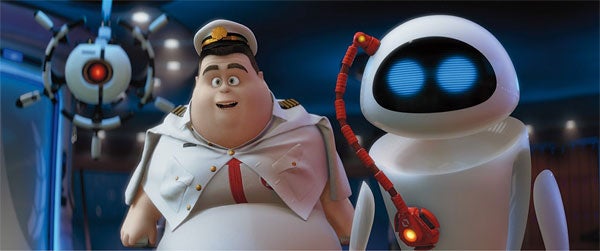Space: The Ugliest Frontier?
A new study suggests long-duration space flights could make astronauts shorter, fatter, balder

Doesn’t it seem that all movies and television shows suggest that space will one day be populated by nothing but dashingly lithe men and buxom women? Well there’s a reason it’s called science fiction, because extended space travel could actually leave astronauts a gross, bloated, unattractive mess. Astrobiologist Dr Lewis Dartnel projects that long-term exposure to zero gravity has the potential to ravage your looks in the most unappealing ways.
As we reported earlier this week, NASA is recruiting “pillownauts”, people willing to stay in bed for months at a time to observe the effects zero gravity will have on the body. And the results aren’t pretty. Since you can float, little force is required to get around in space, leading to quick atrophy of muscles. Astronauts tend to lose bone mass fairly quickly making the body very brittle. The development of our circulatory system compensates for gravity, so without it blood starts pooling in strange places, like our heads. This leads to painful headaches, chronic congestion, and, given enough time, comically swollen heads. If the trip is extended into generational lengths of time, the results could become more severe. Muscles and bones may not develop correctly, making space babies short and fat. And living in filtered and climate-controlled environments could lead to an evolutionary phase-out of hair, which primarily functions to maintain body warmth and protect from foreign particles.
The fact remains: the human body wasn’t designed for space travel, but perhaps we’ll one day be able to overcome these negative effects. Perhaps our diet will have added supplements which will overcome bone loss. Perhaps we’ll create artificial gravity so our heads don’t blow up like a balloon. Perhaps we’ll find more efficient ways to exercise in space so we don’t lose muscles. Let’s hope because otherwise the future is beginning to look ugly.